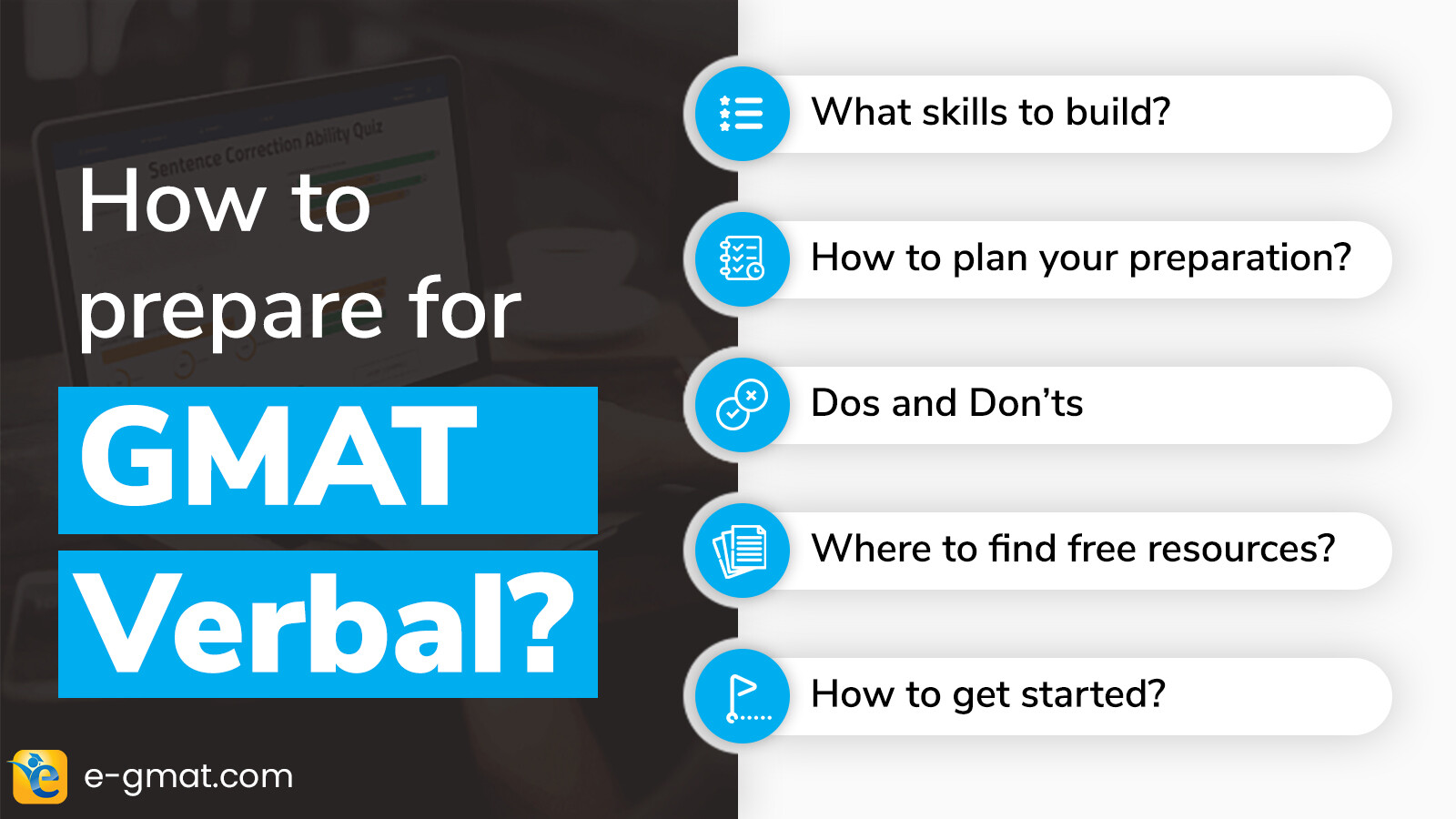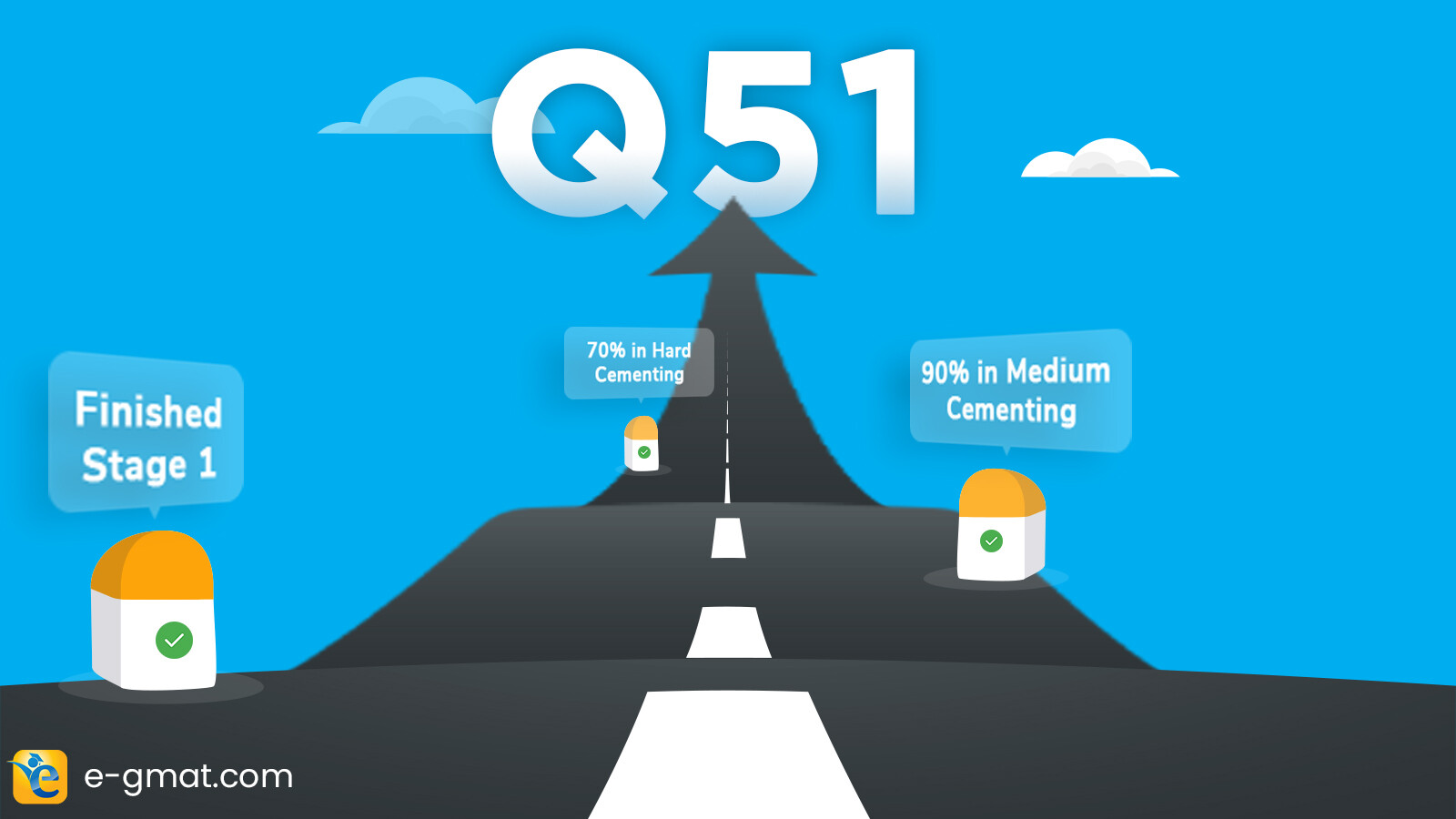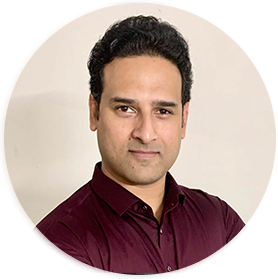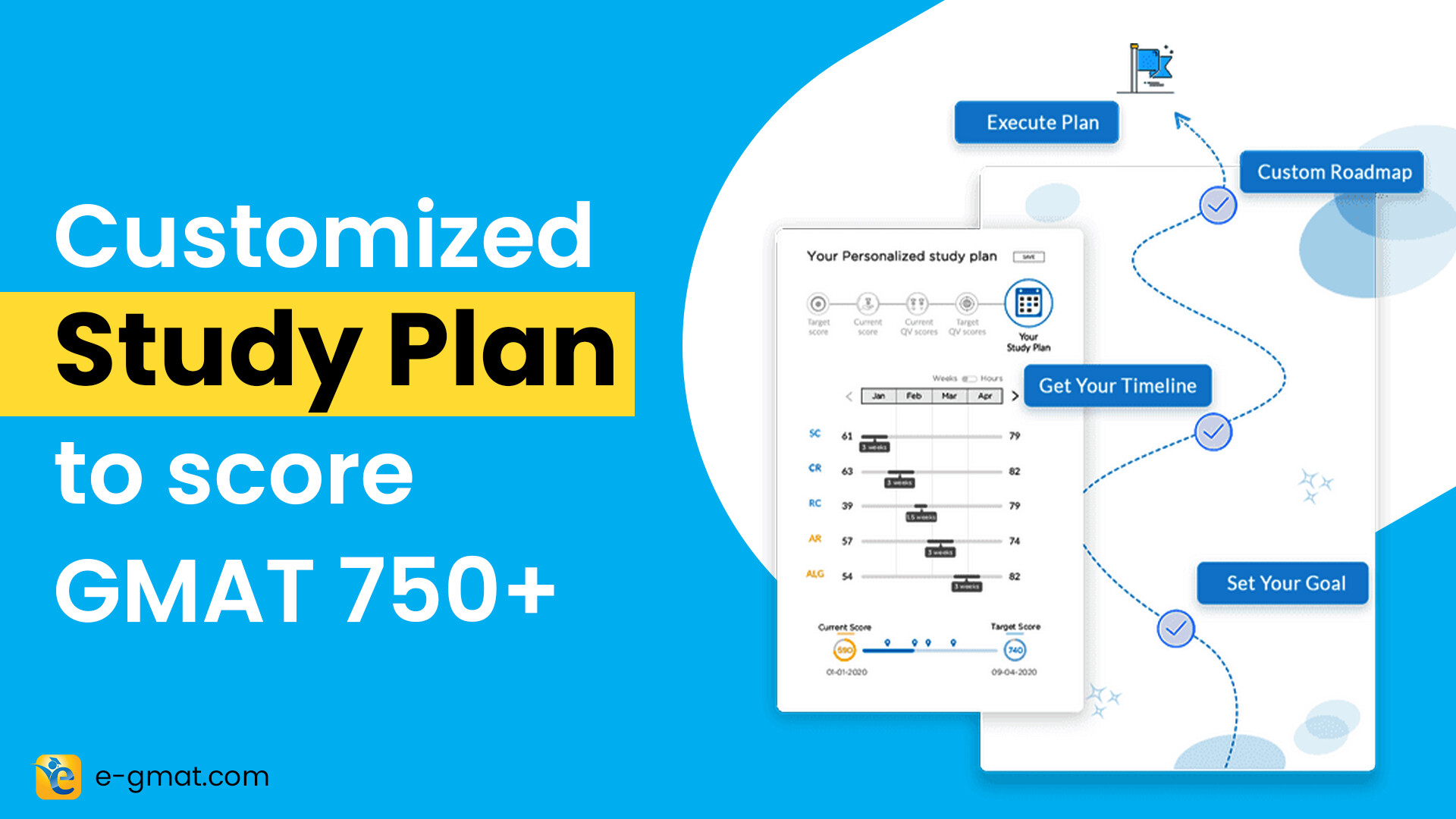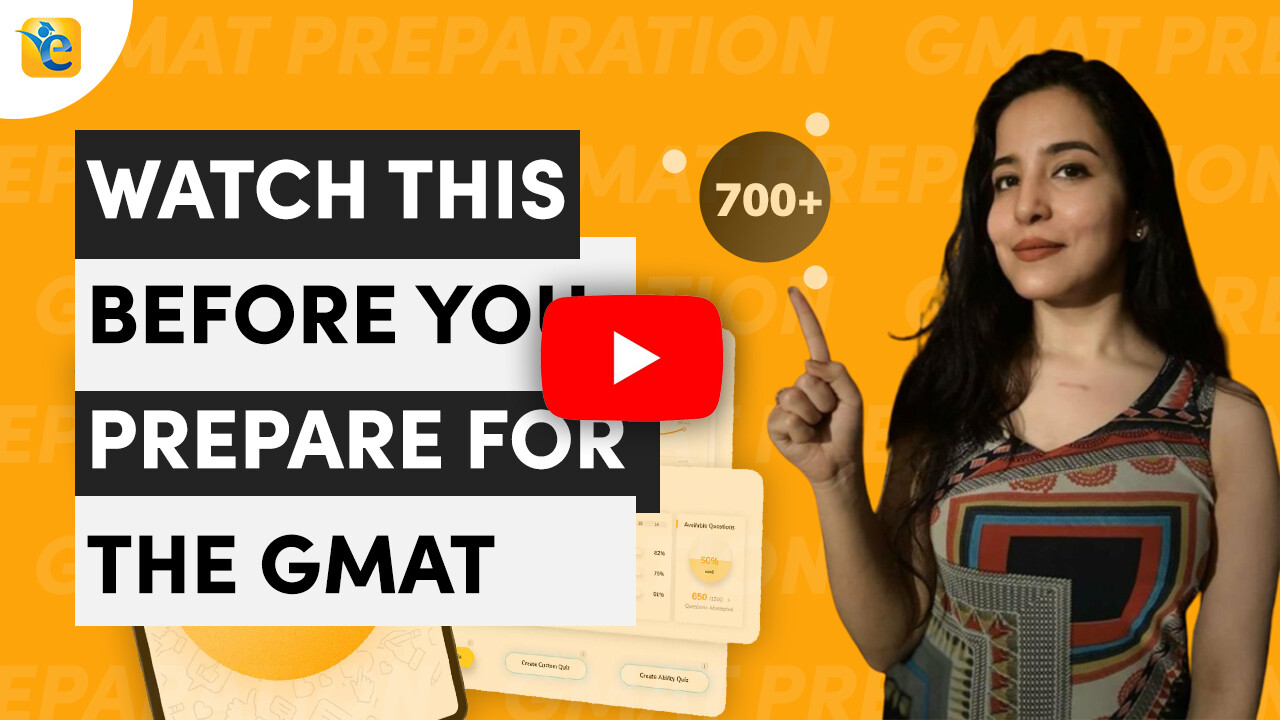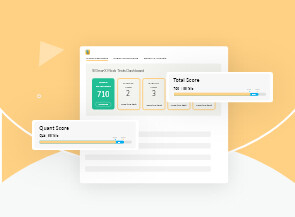“If you step inside the ring with no game-plan, you set yourself up for failure,” says Shaarang who scored a 740 on the GMAT(Q49, V42) in his third attempt. Even though his conceptual knowledge was strong, but taking the GMAT without a strategy resulted in a disappointing score of 640 and 690 in the first and second attempt respectively. So, what did Shaarang do differently in the third attempt? How did he improve by 100 points in just 40 days? He shares his strategy in this debrief. He also shares his insights on how GMAT verbal questions have evolved and what skills do those questions test. You can go through his 15 min video interview or read the transcript to learn his approach to acing the GMAT.
Key highlights of Shaarang’s debrief:
- 1:22 – Mistakes he made in first 2 attempts
- 4:58 – Struggle with RC
- 6:31 – 9 out of 11 SC questions are meaning-based
- 8:50 – Strategy to overcome weak RC ability
- 10:12 – How ‘Master Comprehension’ course helped him
- 13:58 – Tips for future GMAT takers
Shaarang’s story – What didn’t work for him before scoring 740 on the GMAT
Payal – So, how did you start your GMAT preparation?
Shaarang – I started preparing for the GMAT with the worst strategy (in my opinion) which was to only study from the Official Guide. OG is a good question bank, but it is not the right resource to prepare. I practiced from OG for one and a half months and studied on gmatclub for a month and took my first GMAT.
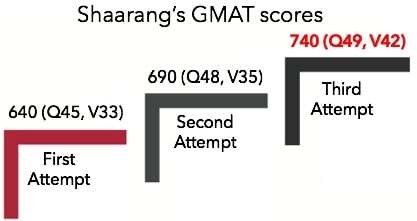
Speaking from a knowledge perspective, the amount of knowledge I had during my first attempt and the third attempt was the same. The only thing that changed was the skill set I had developed. Moreover, I didn’t have a test strategy for my first attempt and I was exhausted by the time I reached the verbal section, and I blanked out.
The problem was that I hadn’t developed those skills (ability) that a structured study plan helps you develop.
After my second attempt in which I scored a 690, I wrote a panic e-mail to e-GMAT support and received a response the next day, even though it was a holiday and they helped with a study plan.
I had only 2 weeks left for my third GMAT appointment, and during this time I focused on building skills rather than just acquiring more knowledge. This strategy helped me break the 700-barrier and reach a score of 740 on the GMAT.
If you want to try the course used by Shaarang, sign up for our Free Trial now! If you are planning to take the GMAT, we can help you with a personalized study plan and give you access to quality online content to prepare. Write to us at acethegmat@e-gmat.com. We are the most reviewed GMAT prep company on gmatclub with more than 2400 reviews.
Save 60+ hours of GMAT preparation by crafting a well-defined study plan in just 3 steps:
His struggle with GMAT Reading Comprehension
Payal – I can see that you did not complete all the concept files but practiced extensively on Scholaranium. Tell me about the skills that you gained and what was your approach?
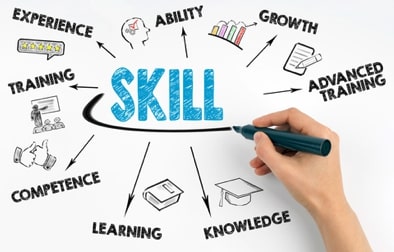
Shaarang – I knew that I could not outperform in the quant section and my strength lies in the verbal section. But, what I learned from my first two attempts was that mastering the skills to identify mistakes is essential or else the verbal score could nosedive. I bought the ESR for my first attempt and noticed that I got 6 questions wrong out of the first 10 questions. Even though I got 25 out of the last 27 questions correct, I still managed only a V33.
Learn how to leverage the adaptive nature of the GMAT to score 740+.
In my first two attempts, I struggled with the Reading Comprehension (RC) and Critical Reasoning (CR) sub-sections. Reading a 50-line passage in the test conditions was really difficult for me to read both the times. I knew that it is a big weakness of mine. So, I went through the entire course on RC and CR. I practiced all the 750 questions in scholaranium.
Payal – I can see that you completed the scholaranium and that too with high accuracy. So, you learned our process and increased your accuracy.
Shaarang – Yes, scholaranium really helped. The tricky thing about RC passages is that if you get the first question of the passage wrong, there is a high probability that you’ll mark incorrect answers for the rest 2-3 questions of the passage and that could hurt your score badly. Practicing on scholaranium helped me master the skill to deal with RC and CR questions.
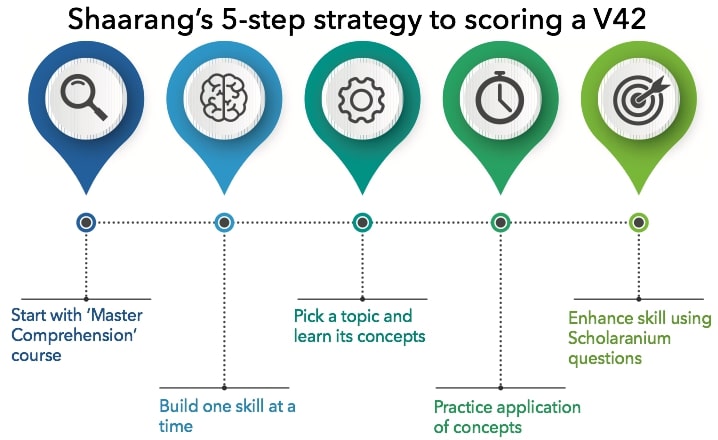
How GMAT Sentence Correction questions have evolved now
Payal – What about sentence correction?

Shaarang – I believed SC was my strength and therefore, I skimmed through the SC course as I had only 14 days left for my third attempt. However, learning the meaning-based approach helped me immensely in solving SC questions. GMAT has moved on from simple grammar-based questions where it is easier to eliminate wrong options to meaning based questions which the process of elimination is time-consuming. 9 out of the 11 SC questions on my GMAT were meaning based questions.
Payal – So, when you say that the questions were meaning based, do you mean that there were no grammatical errors in the question? How did you tackle these questions?
Shaarang – No. There were no discernible grammatical errors in the question. There may have been some nuanced grammatical errors but there were definitely meaning-based errors. This is why I went directly with the meaning-based approach.
Role of ‘Master Comprehension’ course and Scholaranium in acing the GMAT
Payal – Coming back to RC. What kind of skills did you learn from the course?
Shaarang – I think the most helpful module was the ‘Master Comprehension’ course, where you teach how to understand the meaning of a sentence in just one read.
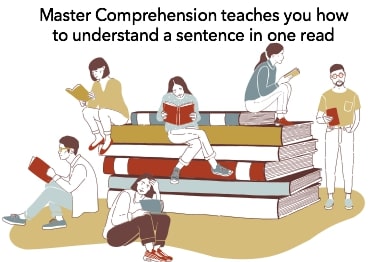
I am a speed reader and I scan through the content. One of the core skills to ace GMAT verbal is to master the skill of reading and understanding simultaneously in the first go because you cannot go back again and read.
The concept of ‘pause points’ really helped me improve my reading ability. Pausing after each fragment and understanding it, and assimilating the information of all fragments of a sentence to understand the complete meaning of the sentence was the most valuable skill I learned.
Payal – How did Scholaranium help you in improving your RC skills?
Shaarang – Scholaranium has great ‘Reading comprehension’ passages and they are slightly difficult than original GMAT RC passages. They were an amazing resource for practicing verbal questions especially the RC passages.
Payal – I am glad you found the Master comprehension course and scholaranium helpful for you. I can say that ‘Master comprehension’ course was the missing piece of the puzzle for you. You had the concepts ingrained in your mind and you knew how to approach the questions (meaning-based eliminations rather than grammar-based). So, how did you come to know about e-GMAT?
How proper preparation could have saved him US $500
Shaarang – I was quite active on gmatclub and saw queries answered by you and your team on it. The queries were answered in a very structured manner and I definitely wanted to learn more about e-GMAT. I contacted your support team and received a good response regarding how you can help me ace the GMAT.

I always thought why I didn’t start earlier with the e-GMAT course. I even tell it to a bunch of people that buying the e-GMAT course is better than retaking the GMAT. Your course costs around US $300 and retaking the GMAT twice cost me US $500. I always suggest people to buy your course, build the skills and then ace the GMAT in the first attempt.
Learn more on how you can save more than US$600 on the GMAT.
Shaarang’s advice for GMAT takers to score above 740 on the GMAT
Payal – What advice would you like to give to other GMAT takers who wish to score V40+?

Shaarang – I have told a bunch of people that the biggest mistake they make is in GMAT verbal is that they just solve questions. I always suggest them learn one concept at a time and practice it. The focus should be on building skill (ability) and e-GMAT’s course is focused on building GMAT verbal skills. I always thought I was good at GMAT verbal, only to realize being good in the English language and being good at GMAT verbal are very different things.
Therefore, my suggestion is to first build one skill at a time. Just pick on topic and learn the concepts. Practice the application of the concepts you learned and enhance your skills using the Scholaranium questions.
This skill-building will help you on the actual GMAT because GMAT verbal is very time stringent. You have to be on your A-game on the test day if you want to score above 740 on the GMAT with a V40+.


